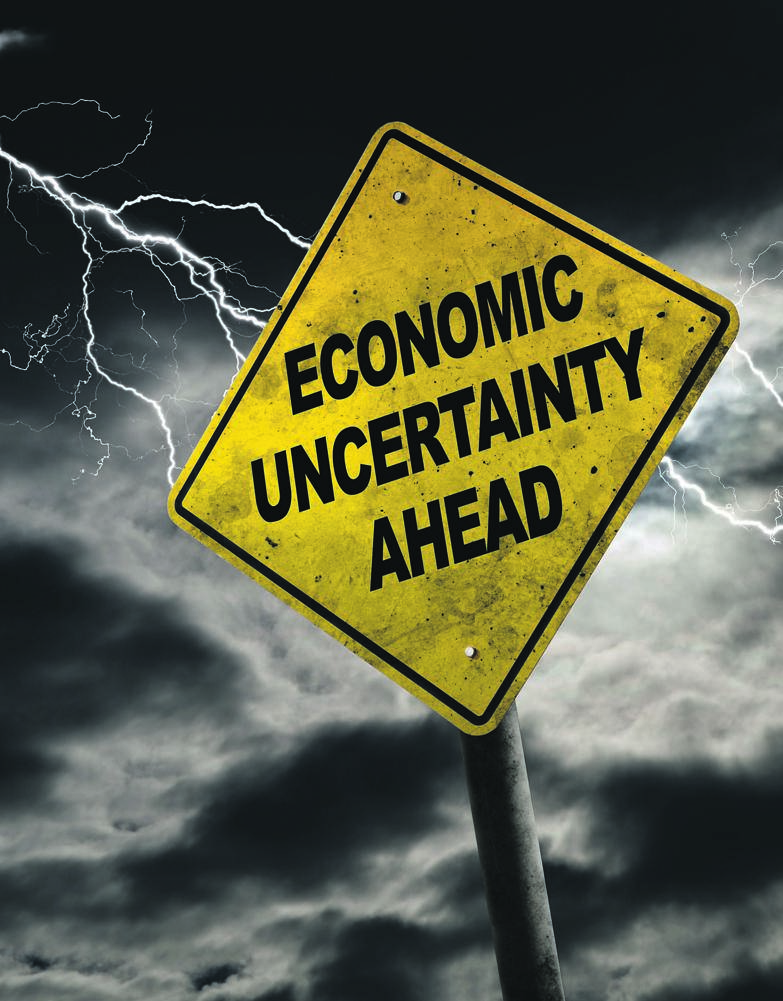
Already in recession, South Africa’s immediate and longer-term prognosis is no longer bleak but positively grim. South African companies – grappling with stagnant growth, decreasing business confidence and a downgrade in the sovereign rating – are now having to come to grips with the impact of the Covid-19 coronavirus. But a recession, even a lengthy one, does not necessarily spell their demise if managed properly, says Arshad Abba, Canback vice-president of Middle East and Africa
Were South Africa a person, there is no doubt that it would be at high risk of death from Covid-19.
In recession, with its sovereign credit rating relegated to junk status, with economic growth for 2020 forecast to contract because of the impact of Covid-19, with an electricity supply constrained by an inept and heavily indebted Eskom, and faced with a seemingly clueless political leadership to deal with the economic crisis, there was no end to South Africa’s economic weaknesses and vulnerabilities.
Our economic woes were present even before the deadly virus hit our shores.
Although government has acted quickly in trying to curb the spread of the virus, our fiscal position and bad policy decisions from the Jacob Zuma years will limit our position to mitigate the effects of Covid-19 and its far-reaching impact on our economy.
Having an inefficient state makes this task all the more difficult.
Now with the country in a lockdown it can little afford, South Africa’s chances of surviving look even bleaker.
As economists and analysts try to predict what exactly the post-Covid-19 world will look like, the only certainty is that Covid-19 has dealt a severe blow to the global economy.
Stock markets have plunged, global unemployment is up, production in China – the world’s factory – has slowed and certain industries, such as the travel industry, are on their knees.
This led the Organisation for Economic Co-operation and Development to warn that countries will be dealing with the economic fallout of coronavirus “for years to come”.
The organisation also forecast that many of the world’s biggest economies will fall into recession in the coming months.
This is in line with our forecasts, which show a market contraction in Europe, Africa, Latin America and North America.
For South African companies already in the midst of a second recession in two years, this may well sound like the death knell.
But a recession does not necessarily foretell demise.
A Canback study into the performance of 1 165 global public companies across 69 industries, excluding banks, during the 2008/09 financial crisis, found that while the instinctive reaction when facing a recession is often for companies to focus on controlling costs – by slimming down operations, squeezing suppliers and re-engineering the core business – this was generally not enough to thrive during and after one.
Instead, the study found that companies that take steps to be more financially disciplined before recessions enter them with more flexibility to take advantage of soft labour and asset markets.
In addition, the study found that companies that use this flexibility to invest in growth-oriented strategies and introduce product innovations are the ones that succeed in the epilogue of recessions.
Around 223 companies, which were fiscally disciplined entering the financial crisis and continued to innovate during it, emerged relatively unfazed from the crisis, while the rest took almost five to six years to recover.
South African companies, which were included in the study, took longer to recover from the financial crisis compared with their global peers.
They also struggled to increase their margins from where they were before the recession.
What does this mean for SA Inc as the world faces a recession and South Africa a prolonged contraction?
The first thing we need to do is: internally, be prudent in managing cash flow and externally, look for new markets.
Because South Africa will struggle to grow over the next five years, it is important to diversify to other markets and not overemphasise revenue growth.
It is quite clear just from the Big 4 South African banks who reported their annual earnings just before the lockdown, that significant growth comes not from inside, but outside, South Africa.
Companies that will thrive over the next few years must diversify into other countries. But they cannot go off half-cocked, they must be strategic about the countries they enter.
They cannot do a drag-and-drop into other African countries, as so many South African businesses have done in the past. Each region and country in Africa is unique, and South African businesses need to understand the consumer markets and needs before they enter.
South African companies that have no interest – or ability – in expanding into other markets need to be prudent in how they manage their revenue versus their costs.
They must also adapt to the changing needs of their markets and customers.
Many companies continue to sell the same product within similar consumer channels that prospered historically, despite the fact that consumer dynamics and competition have changed.
It is imperative that companies have a better understanding of their customers and the marketplace.
South African companies also need to become more efficient as they tend to be labour intensive compared with their international peers.
The world, as Covid-19 has once again demonstrated, is a global village and SA Inc has to prepare for the global assault and become more efficient at what it does.
A recession, although sad, provides South Africa with the perfect opportunity to reorganise its organisations and operations, and to move away from the old ways of doing things.
Government also has the opportunity, now feeling the true impact of a significant downturn, to ensure greater efficiency in the state and through brave policy decisions to make South Africa attractive again.
Capital-intensive markets are quite expensive and it is imperative that new ways are ushered in.
They are also likely to lead to the weakening of trade unions in South Africa, which many companies and business leaders believe is a significant contributor to the stasis in which the country finds itself.
South Africa’s prognosis will depend very much on how it approaches the tough times ahead.
But positive thinking and taking the right action will help it fight off what afflicts it and to emerge stronger from its sickbed.




 Publications
Publications
 Partners
Partners








